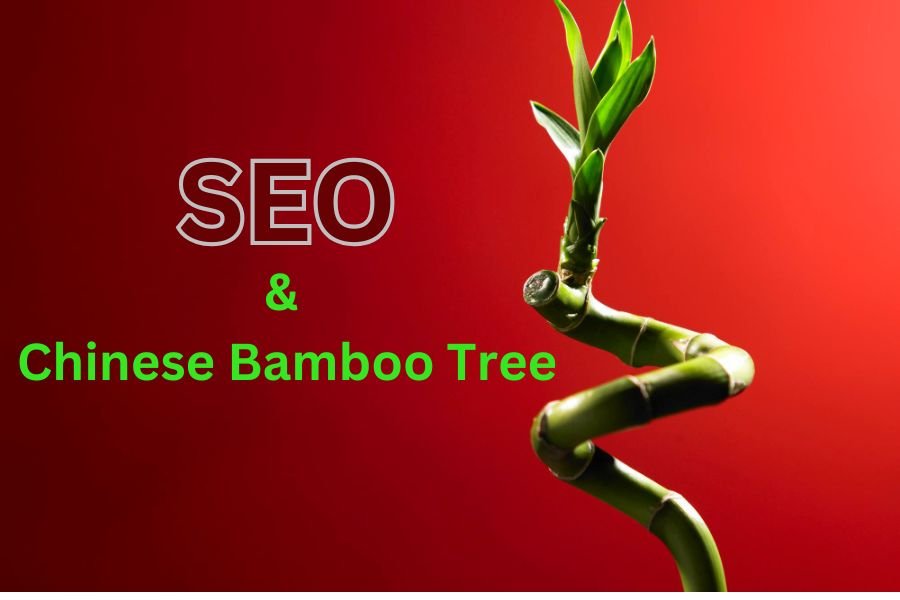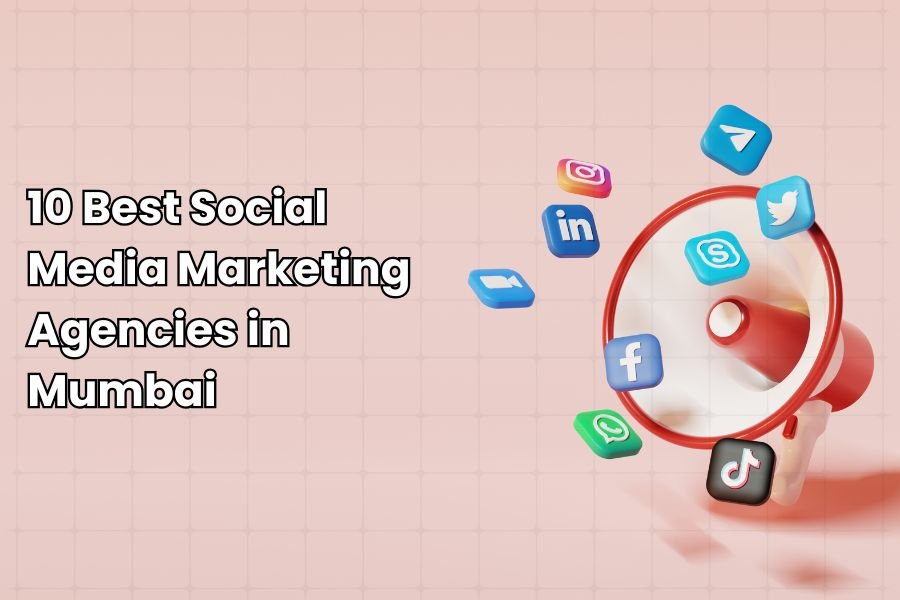Mastering the Social Symphony: A Comprehensive Guide to Social Media Marketing Strategies and Trends
Introduction
In the contemporary digital landscape, the role of social media marketing (SMM) has become increasingly pivotal for businesses striving to establish a robust online presence. This comprehensive guide aims to delve into the intricacies of mastering the social symphony, shedding light on effective strategies and emerging trends within the realm of social media marketing. As we navigate through the various facets of this dynamic domain, the overarching objective is to equip marketers and businesses with the knowledge needed to harness the full potential of social media platforms.
Definition of Social Media Marketing (SMM)
Social Media Marketing (SMM) refers to the utilization of social media platforms to promote products, services, or brands, with the primary objective of reaching and engaging a targeted audience. It involves creating and sharing content on various social media channels such as Facebook, Twitter, Instagram, LinkedIn, and others, to establish a digital presence and foster meaningful connections with potential customers.
This multifaceted approach involves not only promotional content but also focuses on building a community around the brand. Social media marketing encompasses a range of activities, including but not limited to content creation, audience engagement, influencer partnerships, and analytics to measure the effectiveness of campaigns.
Importance of SMM in the digital age
In the contemporary digital age, the importance of Social Media Marketing cannot be overstated. Social media platforms have evolved into dynamic hubs where individuals not only connect with friends and family but also actively engage with brands. Businesses that harness the power of social media marketing gain a direct line of communication with their target audience, fostering brand loyalty and customer advocacy.
The digital landscape is characterized by its fast-paced nature, and social media serves as a real-time conduit for information dissemination. SMM allows businesses to stay agile and responsive, adapting their strategies based on real-time feedback and emerging trends. Moreover, social media marketing facilitates precise targeting, enabling businesses to reach specific demographics with tailored content.
In addition to brand visibility and audience engagement, social media marketing significantly influences purchasing decisions. A robust social media presence builds trust, credibility, and authority, influencing consumers to choose a particular brand over its competitors. Furthermore, the data generated through social media analytics empowers businesses to refine their strategies continuously.
Benefits of Social Media Marketing
Social Media Marketing offers a myriad of benefits for businesses, ranging from enhanced brand awareness to improved customer relationships. Understanding these advantages is paramount for creating effective SMM strategies.
1. Brand Visibility and Recognition: SMM serves as a potent tool for increasing brand visibility. Consistent and engaging content across various social media platforms helps build brand recognition, making it more likely for users to remember and choose a particular brand when making purchasing decisions.
2. Targeted Advertising: Unlike traditional advertising, SMM allows for highly targeted campaigns. With the wealth of user data available, businesses can tailor their advertisements to specific demographics, interests, and behaviors, ensuring that their messages resonate with the right audience.
3. Increased Website Traffic: Social media acts as a traffic driver to a business’s website. By strategically placing links and creating compelling calls-to-action, SMM can funnel interested users from social platforms to a company’s website, increasing the chances of conversion.
4. Community Building and Customer Loyalty: Through consistent interaction and engagement, businesses can build a loyal community around their brand. SMM provides a platform for direct communication with customers, fostering a sense of connection and loyalty. This community can serve as brand advocates, further amplifying the brand’s reach.
5. Cost-Effectiveness: Compared to traditional advertising channels, SMM often proves to be more cost-effective. Many social media platforms offer affordable advertising options, and organic reach through well-crafted content can also generate significant results without a hefty budget.
Increased brand awareness
Social Media Marketing (SMM) serves as a powerful tool for businesses to enhance brand awareness. This strategy involves leveraging various social media platforms to engage with a broad audience and create a strong brand presence. To achieve this, it’s crucial to employ a diverse range of content types, including visually appealing graphics, compelling videos, and concise yet impactful messaging.
- Content Calendar: Develop a well-structured content calendar to ensure a consistent brand message across platforms.
- Visual Branding: Utilize visually cohesive elements such as logos, color schemes, and fonts to create a recognizable brand image.
- Hashtag Campaigns: Implement strategic hashtag campaigns to increase the discoverability of your brand and encourage user-generated content.
- Influencer Collaborations: Partner with influencers relevant to your industry to extend your reach and tap into their followers.
- Analytics Monitoring: Regularly monitor analytics to gauge the effectiveness of your brand awareness efforts and adjust strategies accordingly.
Targeted audience reach
One of the key advantages of Social Media Marketing is the ability to reach a highly targeted audience. By understanding your audience demographics, behaviors, and preferences, you can tailor your content to resonate with specific segments. This not only ensures that your message reaches the right people but also increases the likelihood of engagement and conversion.
- Audience Persona Development: Create detailed audience personas based on demographics, interests, and online behavior to guide content creation.
- Paid Advertising: Utilize social media advertising features to precisely target specific demographics and interests.
- Segmented Campaigns: Divide your audience into segments and create specialized campaigns to address the unique needs and preferences of each segment.
- Engagement Strategies: Foster two-way communication through polls, surveys, and interactive content to better understand your audience and adapt your strategies accordingly.
- Localized Content: Tailor content to local cultures and trends to connect with regional audiences on a more personal level.
Improved customer engagement
In the realm of Social Media Marketing (SMM), fostering improved customer engagement is a cornerstone for success. This involves creating meaningful interactions between businesses and their audience, transcending traditional advertising by building relationships. To achieve this, consider the following strategies:
- Content Relevance and Quality: Crafting content that resonates with your target audience is essential. Use the insights gained from social media analytics to understand user preferences, interests, and behaviors. By consistently delivering high-quality and relevant content, you can capture and retain audience attention.
- Interactive Campaigns and Polls: Encourage engagement through interactive campaigns, polls, and surveys. These not only provide valuable insights into customer preferences but also make your audience feel involved and heard. Leverage features offered by social media platforms to create engaging and shareable content.
- Prompt Customer Response: Timely responses to customer inquiries and comments demonstrate attentiveness and contribute to a positive brand image. Utilize chatbots and dedicated customer service teams to ensure that your audience feels valued and supported.
- User-Generated Content: Encourage users to create and share content related to your products or services. User-generated content serves as authentic testimonials and endorsements, fostering a sense of community around your brand.
- Consistent Brand Voice: Maintain a consistent brand voice across all social media channels. This helps in creating a unified brand identity and allows customers to easily recognize and connect with your messaging.
Enhanced website traffic
Driving traffic to your website is a fundamental objective of any social media marketing strategy. Here are strategies to boost website traffic effectively:
- Compelling Call-to-Action (CTA): Craft compelling and clear CTAs in your social media posts. Whether it’s encouraging users to visit your website for exclusive content, promotions, or information, a well-designed CTA can significantly impact click-through rates.
- Strategic Link Placement: Incorporate links strategically within your social media content. This could include sharing blog posts, product pages, or landing pages directly relevant to your audience. Platforms like Instagram and Twitter allow for link placement in profiles or stories.
- Visual Appeal: Utilize visually appealing content to capture attention. Platforms like Pinterest and Instagram are highly visual, and captivating images or infographics can entice users to click through to your website for more information.
- Cross-Promotions and Partnerships: Collaborate with influencers, partners, or other businesses in your industry for cross-promotions. This can expose your brand to a broader audience, driving increased traffic to your website.
- Utilize Social Media Advertising: Leverage paid social media advertising to target specific demographics and direct traffic to your website. Platforms like Facebook and LinkedIn offer robust advertising options to increase visibility among your target audience.
Key Components of a Successful Social Media Marketing Strategy
Social media marketing is a dynamic and ever-evolving landscape that requires a well-thought-out strategy to achieve optimal results. To master the social symphony and excel in this digital realm, understanding and implementing key components in your social media marketing strategy is crucial.
1. Audience Analysis: Begin by identifying and understanding your target audience. Analyze demographics, interests, and online behavior to tailor your content and engagement strategies.
2. Platform Selection: Different social media platforms cater to diverse audiences. Choose platforms that align with your target audience and business objectives. Popular platforms include Facebook, Instagram, Twitter, LinkedIn, and TikTok.
3. Compelling Content Creation: Create high-quality and engaging content that resonates with your audience. Utilize a mix of text, images, videos, and infographics to keep your content diverse and appealing.
4. Consistent Branding: Maintain a consistent brand identity across all social media channels. This includes logos, color schemes, and messaging. Consistency builds brand recognition and trust.
5. Engagement and Interaction: Foster a sense of community by actively engaging with your audience. Respond to comments, messages, and participate in relevant conversations. Social media is a two-way communication channel.
Emerging Trends in Social Media Marketing
The landscape of social media marketing is ever-evolving, with new trends shaping the way brands connect with their audiences. Stay ahead of the curve by exploring these emerging trends:
1. Short-Form Video Content: The popularity of short-form videos continues to rise. Platforms like TikTok and Instagram Reels provide opportunities for creative, engaging, and shareable content.
2. Augmented Reality (AR) Experiences: Integrate AR into your strategy to provide interactive and immersive experiences. AR filters, lenses, and effects can enhance user engagement and brand interaction.
3. Social Commerce Integration: Enable users to make purchases directly through social media platforms. Integrating e-commerce features on platforms like Instagram and Facebook can streamline the customer journey.
4. Conversational Marketing with Chatbots: Implement chatbots for real-time interactions with your audience. Automate responses to frequently asked questions, provide instant support, and enhance the overall user experience.
5. User-Generated Content (UGC): Encourage your audience to create and share content related to your brand. UGC not only fosters community but also provides authentic endorsements that resonate with potential customers.
6. Sustainability and Corporate Social Responsibility (CSR): Consumers are increasingly valuing brands with a commitment to sustainability and CSR. Highlight your brand’s eco-friendly initiatives and social responsibility efforts to connect with socially conscious audiences.
Conclusion
In conclusion, “Mastering the Social Symphony: A Comprehensive Guide to Social Media Marketing Strategies and Trends” unveils the intricate harmony that exists within the realm of social media marketing. Navigating the ever-evolving landscape of digital platforms requires a nuanced understanding of trends and strategies, and this comprehensive guide serves as a valuable compass for marketers aiming to orchestrate successful campaigns.
Emphasizing the pivotal role of Social Media Marketing, the guide illuminates the significance of leveraging platforms effectively, fostering engagement, and adapting to emerging trends. As businesses strive to make their mark in the digital sphere, RK Media Digital Marketing Agency emerges as a beacon of expertise, embodying the principles outlined in this guide. The agency’s commitment to staying at the forefront of social media marketing trends underscores the importance of continuous learning and adaptation in this dynamic field. By mastering the social symphony, businesses can not only amplify their online presence but also cultivate meaningful connections with their target audience, ensuring a lasting impact in the ever-evolving landscape of digital marketing.
Image Reference: Freepik
Disclaimer: All trademarks, logos, and brand names are the property of their respective owners. All company, product, and service names used in this website are for identification purposes only. Use of these names, trademarks, and brands does not imply endorsement.

















